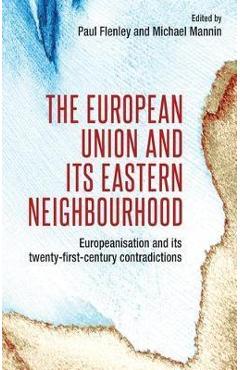Social Policy in the European Union

Social Policy in the European Union
During negotiations for the Treaty of Rome in the 1950s, social policy was viewed as the exclusive provenance of the member states. There were to be provisions to facilitate labour mobility within the common market, but until the 1970s social policy making at the EU-level was modest. However, plans for the internal market moved social policy on the EU's decision-making agenda. The Social Chapter was adopted in 1989, and the Single European Act expanded EU competencies in social policy. The Treaties of Maastricht, Amsterdam and Nice all expanded competencies further, so that by the time the heads of government met in Lisbon in 2007 to sign the EU's latest treaty, the extent of supranational control over important aspects of social policy making was quite impressive.
This important book provides a full account of the evolution of social policy in the EU and of its current reach. It examines the reasons for the increased role of the EU in the area, in spite of formidable obstacles, and details its effects in member states, where social provision is often the biggest item in government budgets and a crucial issue in national elections. Drawing on research done on welfare states around the world and on European integration, this book provides a distinctive and sophisticated account of social policy in Europe, showing how it must now be understood in the context of multi-level governance in which EU institutions play a pivotal role.
PRP: 385.24 Lei
Acesta este Pretul Recomandat de Producator. Pretul de vanzare al produsului este afisat mai jos.
346.72Lei
346.72Lei
385.24 LeiIndisponibil
Descrierea produsului
During negotiations for the Treaty of Rome in the 1950s, social policy was viewed as the exclusive provenance of the member states. There were to be provisions to facilitate labour mobility within the common market, but until the 1970s social policy making at the EU-level was modest. However, plans for the internal market moved social policy on the EU's decision-making agenda. The Social Chapter was adopted in 1989, and the Single European Act expanded EU competencies in social policy. The Treaties of Maastricht, Amsterdam and Nice all expanded competencies further, so that by the time the heads of government met in Lisbon in 2007 to sign the EU's latest treaty, the extent of supranational control over important aspects of social policy making was quite impressive.
This important book provides a full account of the evolution of social policy in the EU and of its current reach. It examines the reasons for the increased role of the EU in the area, in spite of formidable obstacles, and details its effects in member states, where social provision is often the biggest item in government budgets and a crucial issue in national elections. Drawing on research done on welfare states around the world and on European integration, this book provides a distinctive and sophisticated account of social policy in Europe, showing how it must now be understood in the context of multi-level governance in which EU institutions play a pivotal role.
Detaliile produsului





























